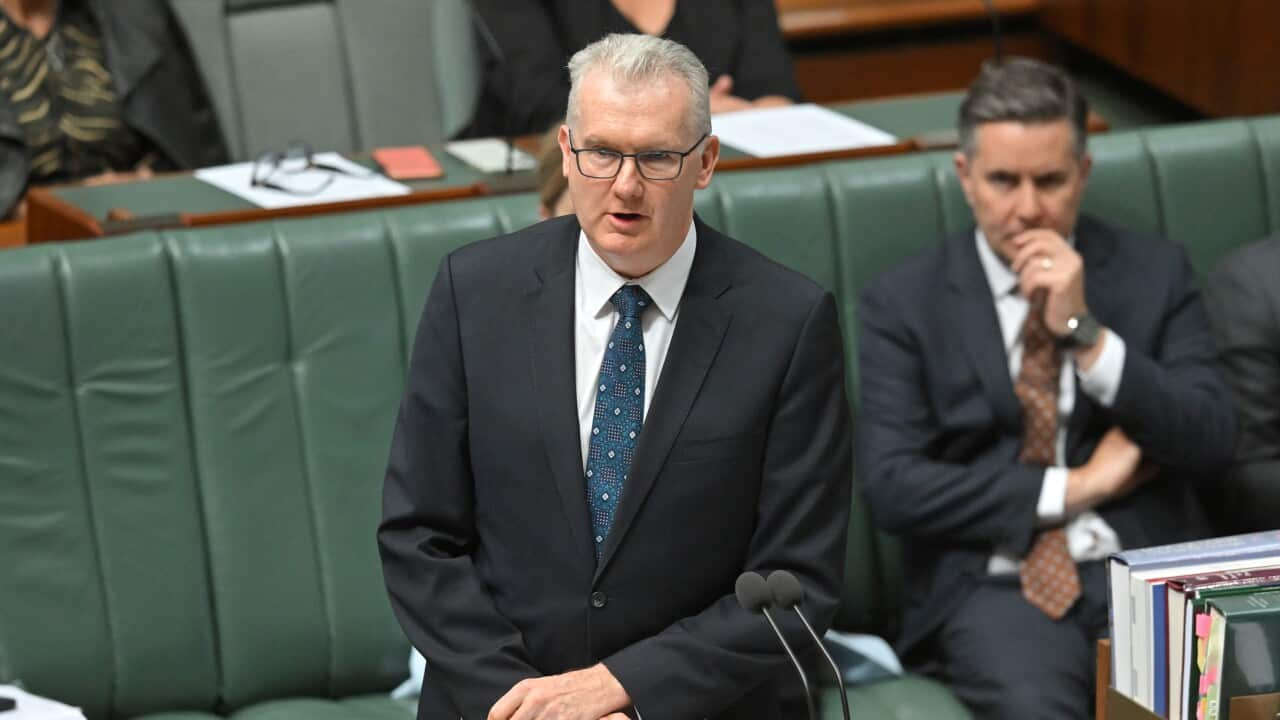More than 800 Palestinians who came to Australia on tourist visas have been granted work, Medicare and study rights as the government speeds up processing of humanitarian visas, ending more than a year of limbo.
In an interview with SBS Arabic, Home Affairs Minister Tony Burke confirmed he had personally transferred “a bit less than half” of the cohort in Australia on 12-month visitor visas to the 786 Temporary (Humanitarian Concern) visa — which is valid for three years.
“And can I say they have been some of the happiest meetings I’ve ever had,” Burke said.
“People are constantly worried about their 12 month visas, what happens when it runs out.”
“Eventually I’m moving everyone from the protection pathway to the humanitarian pathway, subject to the normal security checks,” Burke said.
The process requires tourist-visa holders to first apply for a subclass 449 protection visa — without Medicare access — before they can apply for the longer-term visa.
“We have got through a bit less than half the caseload at the moment and we are now starting to speed that up.”
The rapid processing of visas represents a sharp gear-change from the government, which had in October granted humanitarian visas to just twelve families.
In contrast, more than 5,000 humanitarian visas were promptly issued to Afghans fleeing the Taliban, and 4,877 for Ukrainians fleeing Russia’s invasion.
“Effectively this is the government saying: ‘You’ve been through enough’,” Burke said.
“‘We want to give you some security, we want to put you on the same visa the Ukrainians were on, with an understanding that during the life of that visa, we’ll make a decision about resolving your status’,” Burke said.
Since Hamas’ October 7 attack on Israel and Israel’s subsequent offensive, about 3,000 tourist visas have been granted to Palestinians fleeing Gaza and 1,732 have arrived in Australia. More than 7,100 applications have been rejected.
‘Everyone checked by ASIO’
In August, the Opposition Leader called for a temporary freeze on all visas for Palestinians fleeing Gaza, claiming they represented a “security risk.”
Burke said “everyone” issued a humanitarian visa will be “subject to the normal security checks any government has to do.”
“Everyone is going through all the ASIO checks, and the checks you’d want people to go through,” he said.
The government has been adamant that all Palestinians who have arrived in Australia were checked by security agencies and confirmed it has refused visas due to national security concerns.
Last month, it was revealed one Palestinian person was moved to immigration detention, after the government revoked their visa on-shore on character grounds.
However, the government said it would not reveal further details of the case for legal and privacy reasons.

